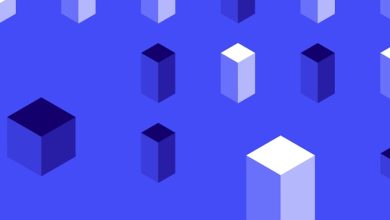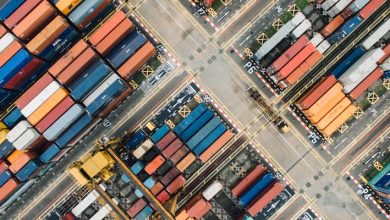The Impact of Decentralized Oracles on Smart Contracts

- Understanding the Role of Oracles in Smart Contracts
- Exploring the Advantages of Decentralized Oracles in Blockchain Technology
- Challenges and Solutions in Implementing Decentralized Oracles for Smart Contracts
- The Future of Smart Contracts: Leveraging Decentralized Oracles for Enhanced Security
- Real-world Applications of Decentralized Oracles in Smart Contracts
- How Decentralized Oracles are Revolutionizing the Smart Contract Ecosystem
Understanding the Role of Oracles in Smart Contracts
Smart contracts rely on decentralized oracles to interact with external data sources. Oracles act as bridges between the blockchain and real-world information, allowing smart contracts to execute based on real-time data. By providing accurate and reliable data to smart contracts, oracles play a crucial role in ensuring the integrity and security of automated transactions.
Decentralized oracles use cryptographic techniques to verify data authenticity and prevent tampering. This ensures that the information provided to smart contracts is trustworthy and cannot be manipulated by malicious actors. By leveraging decentralized consensus mechanisms, oracles eliminate the need for a single point of failure, enhancing the overall reliability of smart contract operations.
In addition to fetching data, oracles can also perform computations and trigger events based on predefined conditions. This functionality enables smart contracts to respond dynamically to changing circumstances, making them more adaptable and versatile. Oracles facilitate complex interactions between blockchain networks and external systems, unlocking a wide range of use cases across various industries.
Overall, understanding the role of oracles in smart contracts is essential for grasping the full potential of decentralized applications. By enabling seamless integration with external data sources and enhancing the autonomy of smart contracts, oracles pave the way for the widespread adoption of blockchain technology in diverse fields. As the decentralized oracle ecosystem continues to evolve, its impact on smart contract functionality and scalability will only grow stronger.
Exploring the Advantages of Decentralized Oracles in Blockchain Technology
Decentralized oracles play a crucial role in enhancing the capabilities of smart contracts in blockchain technology. By providing external data to smart contracts in a secure and trustless manner, decentralized oracles enable smart contracts to interact with the real world. This opens up a wide range of possibilities for implementing various use cases that require external information for execution.
One of the key advantages of decentralized oracles is their ability to ensure data integrity and reliability. Unlike centralized oracles that are vulnerable to manipulation or single points of failure, decentralized oracles use cryptographic techniques and consensus mechanisms to verify the accuracy of the data they provide. This significantly reduces the risk of data manipulation and enhances the overall security of smart contracts.
Another advantage of decentralized oracles is their ability to enhance the scalability of blockchain applications. By allowing smart contracts to access external data efficiently, decentralized oracles enable the automation of a wide range of processes without the need for manual intervention. This can lead to significant cost savings and increased operational efficiency for businesses leveraging blockchain technology.
Furthermore, decentralized oracles promote transparency and decentralization in blockchain ecosystems. By leveraging multiple independent oracles to source and verify external data, smart contracts can operate in a more decentralized manner, reducing the reliance on any single entity. This helps to foster a more open and inclusive ecosystem where trust is distributed among multiple participants.
Overall, the advantages of decentralized oracles in blockchain technology are clear. They enhance the security, reliability, scalability, and decentralization of smart contracts, opening up new possibilities for innovation and growth in various industries. As blockchain technology continues to evolve, decentralized oracles will play an increasingly important role in shaping the future of smart contract applications.
Challenges and Solutions in Implementing Decentralized Oracles for Smart Contracts
Implementing decentralized oracles for smart contracts comes with its own set of challenges that need to be addressed to ensure the reliability and security of the system. One major challenge is the issue of data quality. Since decentralized oracles rely on external sources to provide data to smart contracts, there is a risk of inaccurate or manipulated data being fed into the system. This can compromise the integrity of the smart contract and lead to undesirable outcomes.
Another challenge is the issue of scalability. As the number of smart contracts utilizing decentralized oracles increases, the demand for reliable data feeds also grows. This can put a strain on the network and lead to delays in data retrieval, affecting the overall performance of the system. To address this issue, developers need to find ways to optimize data retrieval and processing to ensure smooth operation even at scale.
Security is also a significant concern when implementing decentralized oracles for smart contracts. Since oracles act as bridges between the blockchain and external data sources, they can become potential points of vulnerability for attacks. Malicious actors may attempt to manipulate the data feed or disrupt the communication between the oracle and the smart contract. To mitigate these risks, developers need to implement robust security measures such as encryption, authentication, and data validation protocols.
Interoperability is another challenge that needs to be considered when implementing decentralized oracles for smart contracts. Different blockchain platforms may have varying standards and protocols for oracles, making it difficult for smart contracts to communicate seamlessly across different networks. Developers need to ensure that their oracles are compatible with a wide range of blockchain platforms to enable cross-chain operability and data exchange.
In conclusion, while decentralized oracles offer a promising solution for enhancing the capabilities of smart contracts, they also present several challenges that need to be carefully addressed. By focusing on data quality, scalability, security, and interoperability, developers can overcome these challenges and create a more robust and reliable system for executing smart contracts.
The Future of Smart Contracts: Leveraging Decentralized Oracles for Enhanced Security
The future of smart contracts lies in leveraging decentralized oracles to enhance security. By incorporating decentralized oracles into smart contract systems, developers can ensure a higher level of trust and reliability in the data inputs and outputs of their contracts.
Decentralized oracles act as bridges between smart contracts and external data sources, providing a secure and reliable way to feed real-world data into the blockchain. This integration helps to prevent manipulation or tampering with the data, reducing the risk of fraudulent activities.
Furthermore, decentralized oracles can enable smart contracts to interact with off-chain resources, opening up a world of possibilities for use cases in various industries. From supply chain management to finance and insurance, decentralized oracles can revolutionize how contracts are executed and enforced.
Overall, the incorporation of decentralized oracles into smart contract ecosystems represents a significant step forward in enhancing security and reliability. As the technology continues to evolve, we can expect to see even greater innovation and adoption of smart contracts in the years to come.
Real-world Applications of Decentralized Oracles in Smart Contracts
Decentralized oracles in smart contracts have a myriad of real-world applications that showcase their versatility and potential impact on various industries. By securely connecting blockchain-based smart contracts with off-chain data sources, decentralized oracles enable smart contracts to interact with external data in a trustless and reliable manner.
One significant application of decentralized oracles is in the realm of decentralized finance (DeFi). Decentralized finance platforms rely on accurate and timely price feeds for assets such as cryptocurrencies, stocks, and commodities. Decentralized oracles play a crucial role in providing these price feeds to smart contracts, enabling automated trading, lending, and borrowing without the need for intermediaries.
Another key application of decentralized oracles is in supply chain management. Smart contracts can be used to automate and streamline various supply chain processes, such as tracking the movement of goods, verifying product authenticity, and triggering payments upon delivery. Decentralized oracles can provide real-time data on shipment status, inventory levels, and other relevant information to ensure transparency and efficiency in supply chain operations.
Decentralized oracles also have applications in the insurance industry, where they can be used to trigger insurance payouts based on predefined conditions. For example, smart contracts can utilize decentralized oracles to verify the occurrence of natural disasters, flight delays, or other events that trigger insurance claims. By automating the claims process and eliminating the need for manual verification, decentralized oracles can reduce costs and improve the speed and accuracy of insurance payouts.
How Decentralized Oracles are Revolutionizing the Smart Contract Ecosystem
Decentralized oracles play a crucial role in the smart contract ecosystem by providing external data to blockchain networks. This data feeds into smart contracts, enabling them to execute based on real-world information. Unlike traditional oracles that rely on a centralized authority to provide data, decentralized oracles source information from multiple independent parties. This decentralized approach ensures greater transparency, security, and reliability in the execution of smart contracts.
By leveraging decentralized oracles, smart contracts can access a wide range of data, including price feeds, weather conditions, and sports results. This data can be used to trigger various actions within the smart contract, such as making payments, settling bets, or executing trades. Decentralized oracles are revolutionizing the smart contract ecosystem by expanding its capabilities and enabling more complex and sophisticated applications to be built on blockchain networks.
Furthermore, decentralized oracles help mitigate the risk of data manipulation and tampering, as information is sourced from multiple independent sources. This reduces the likelihood of single points of failure and ensures the integrity of the data used in smart contract execution. As a result, decentralized oracles are becoming increasingly popular in the blockchain space, as they offer a more secure and reliable way to connect smart contracts with the real world.



